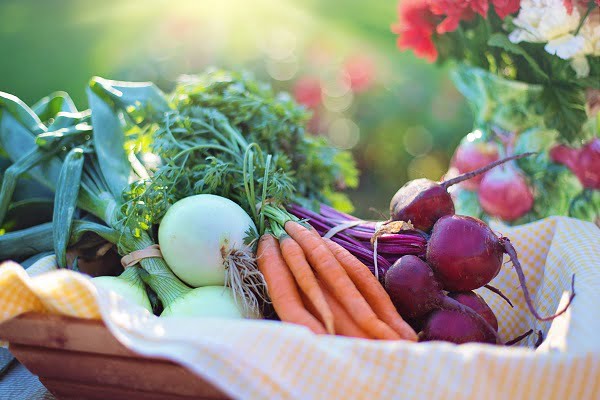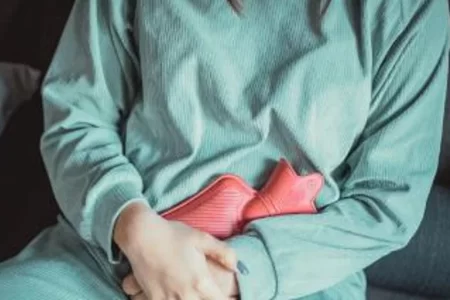Diet for Hemorrhoids: Foods to Eat and Foods to Avoid in Piles
- Updated on: Jul 10, 2024
- 3 min Read
By
- Published on Sep 27, 2019

Foods to eat in hemorrhoid
“Eat more fiber.” “Stay hydrated.” This is the advice mostly given to patients who have haemorrhoids (piles).
Diet for hemorrhoids includes different foods that are beneficial for hemorrhoid patients such as:
Fiber-rich food for piles
Fibre is an important part of diet for piles. Talking about fiber, there are actually two types of fibers found in various food items. They include:
Soluble fiber
As the name signifies, soluble fiber refers to the fiber that dissolves in water to form a gel-like material. It is found in oats, peas, beans, apples, citrus fruits, carrots, barley, and psyllium.
Insoluble fiber
Insoluble fiber does not dissolve in water. It adds bulk to the stool and also helps food pass more easily and quickly through the stomach and intestines. It is found in nuts, beans, vegetables such as cauliflower, green beans, and potatoes, as well as whole-wheat flour and wheat bran.
Importance of fiber
A fiber-rich diet is valuable for people with hemorrhoids because it can help:
- reduce the risk for chronic diseases such as many heart diseases, type 2 diabetes, stroke and cancer
- feed and promote healthy gut bacteria
- ease bowel movement by softening the stool
- decrease cholesterol levels
- assist in controlling blood sugar levels
- help in achieving a healthy weight
More: How Do You Get Hemorrhoids?
More: Hemorrhoid Surgery (Piles Surgery)
Food items that contain fiber
At least 25 to 50 grams of fiber per 1,000 calories should be consumed per day. Different food items which contain fiber are:
- Flax, hemp and chia seeds
- Vegetables such as carrots, celery, broccoli, Brussels sprouts, green beans and cauliflower
- Root vegetables such as onions and sweet potatoes
- Beans such as black beans, lima beans, and baked beans
- Fruits such as bananas and apples
Yogurt
Yogurt is an important entry for piles diet chart. Yogurt provides probiotics (beneficial or friendly bacteria) that promote digestive health and immune function. Probiotics may help prevent or treat hemorrhoids.
Read about treatment of haemorrhoids.
Fruits and Vegetables
Fruits and vegetables contain essential nutrients and fluids. Nutrients are great to strengthen the immune system and fluids help to ease constipation. Fruits and vegetables also add bulk to the stool. They also help to reduce strain and pain during bowel movements. Fruits and vegetables beneficial for hemorrhoid patients may include berries, apples, pears, avocados, peas, broccoli, dark leafy green vegetables and beans.
Whole Grains
Whole grains contain all nutritious part of the grain, so they provide more fiber, protein, and micronutrients than refined grains. Whole grain foods include amaranth, pearled barley supplies, oatmeal, 100-percent whole-grain bread and cold cereals, long-grain brown rice, wild rice, and popcorn.
Fluids
Consuming enough fluids may help prevent or reduce hemorrhoid symptoms related to a low-fluid diet. It is recommended to drink at least 8 cups of fluid daily. This quantity of fluid may be derived from water, milk, 100-percent fruit or vegetable juices, herbal teas or broth-based soups. Avoid caffeinated, alcoholic and high-sugar beverages because they contribute to weight gain.
Aloe Vera
Anthraquinones and anthrones are the two important constituents present in aloe vera. They produce a laxative effect in the body by increasing colonic peristalsis and intestinal water content. These chemical constituents open up chloride channels to prevent reabsorption of water by the colon. This softens the stool, eases out the bowel movements and thus painful defecation is avoided, which ultimately prevents hemorrhoids. Read about haemorrhoid risk factors and prevention.
Foods to avoid in hemorrhoids
The main cause of hemorrhoids is continued constipation. Eating too many foods with little or no fiber is dangerous. Such foods that are to be avoided strictly in haemorrhoids may include:
- milk, cheese, and other dairy products
- chips
- fast food
- white bread and bagels
- ice cream
- meat
- frozen foods and snack foods
- processed foods, such as hot dogs, burgers, and pizzas
If a hemorrhoid has grown to serious levels such that it itches or hurt, cut down on things that can irritate the gut, including:
- Alcohol (dehydrate the body)
- Caffeine
- Spicy foods
- Citrus fruits
- Excess salt (lead to the body hanging on to water, which puts more pressure on the blood vessels)
- Iron supplements (cause constipation and other digestive problems). Read about causes of constipation and its prevention.
Can spicy food cause hemorrhoids?
Normally, spicy foods do not promote the development of hemorrhoids. It even does not contribute to pain. However, in case of swollen hemorrhoids, you should stay away from spicy foods for a few days until the hemorrhoid pain go away.
Spicy foods can make bowel movements more painful, particularly if hemorrhoids are bleeding. Read about bleeding haemorrhoids.
In some cases, spicy foods may contribute to diarrhea, which is again painful during hemorrhoid flare-ups.












